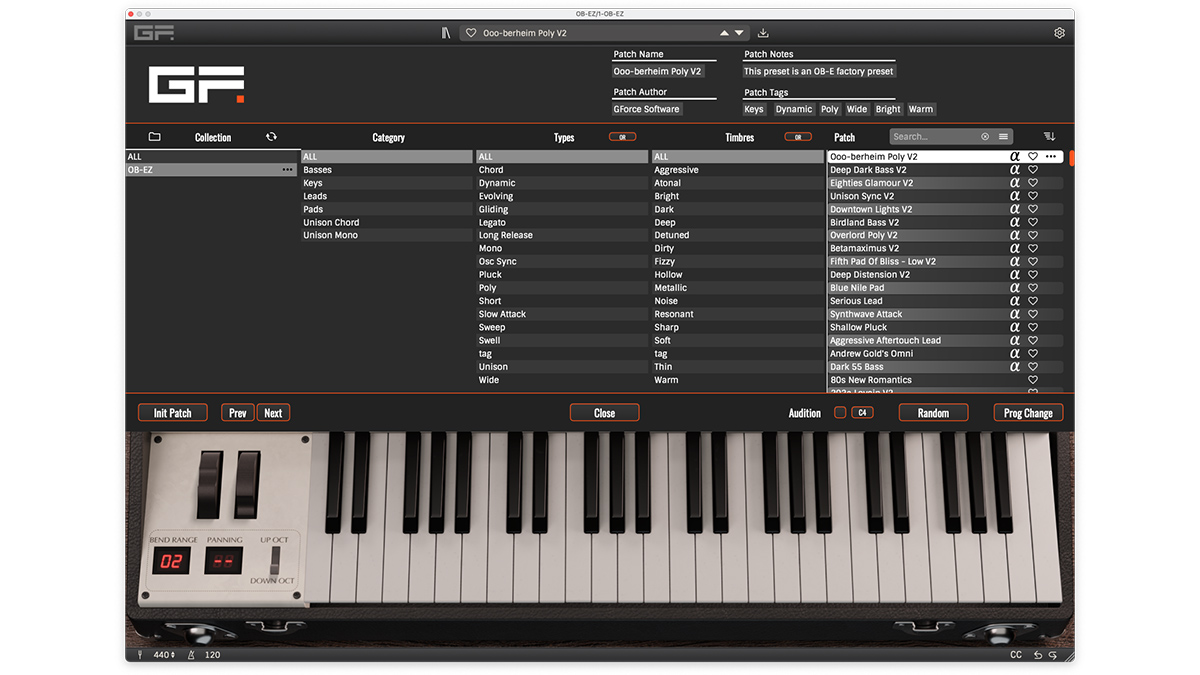GForce’s OB-EZ packs 8 voices of fat Oberheim goodness into a simple plugin instrument, and it’s currently available for a bargain price
The octaphonic power of the OB-E in an affordable, easy-to-use package
GForce’s OB-E has won plaudits for being a spot-on software emulation of the Oberheim 8 Voice, but its multi-module architecture might feel a little daunting to those who just want great sounds, fast. And so now we have OB-EZ, a stripped-back version of the plugin that promises to combine carefully-selected presets with a streamlined control set.
Don’t go thinking that this compromises on sound quality, though; the 260+ patches that come with OB-EZ are designed to have just as much fatness and punch as those that are supplied with the OB-E. The difference is that they’re more easily tweakable.



The idea here is to give you just the ‘essential’ parameters - cutoff, resonance, envelopes, tuning, portamento, delay and reverb, for example. Everything you need and nothing you don’t, basically. A Vintage knob enables you to dial in unpredictable analogue imperfections, there are panning modes for wide soundscapes, and vibrato for some characteristic wobble.
The presets cover everything from classic polysynth sounds to “mega octaphonic pads”, unison basses and recreations of tones you’ve heard on hit records. The UI is resizable, and MIDI mapping is supported.
OB-EZ is available now for the introductory price of £30, rising to £60 in due course (existing OB-E owners should note that they get it for free, and the ability to import OB-EZ presets into OB-E is on the way). It runs on PC and Mac as as standalone application and in VST/AU/AAX plugin formats.
Find out more on the GForce Software website.
Get the MusicRadar Newsletter
Want all the hottest music and gear news, reviews, deals, features and more, direct to your inbox? Sign up here.



I’m the Deputy Editor of MusicRadar, having worked on the site since its launch in 2007. I previously spent eight years working on our sister magazine, Computer Music. I’ve been playing the piano, gigging in bands and failing to finish tracks at home for more than 30 years, 24 of which I’ve also spent writing about music and the ever-changing technology used to make it.
“Do you dare to ditch those ‘normal’ beats in favour of hands-on tweaking and extreme sounds? Of course, you do”: Sonicware CyDrums review
“Excels at unique modulated timbres, atonal drones and microtonal sequences that reinvent themselves each time you dare to touch the synth”: Soma Laboratories Lyra-4 review










